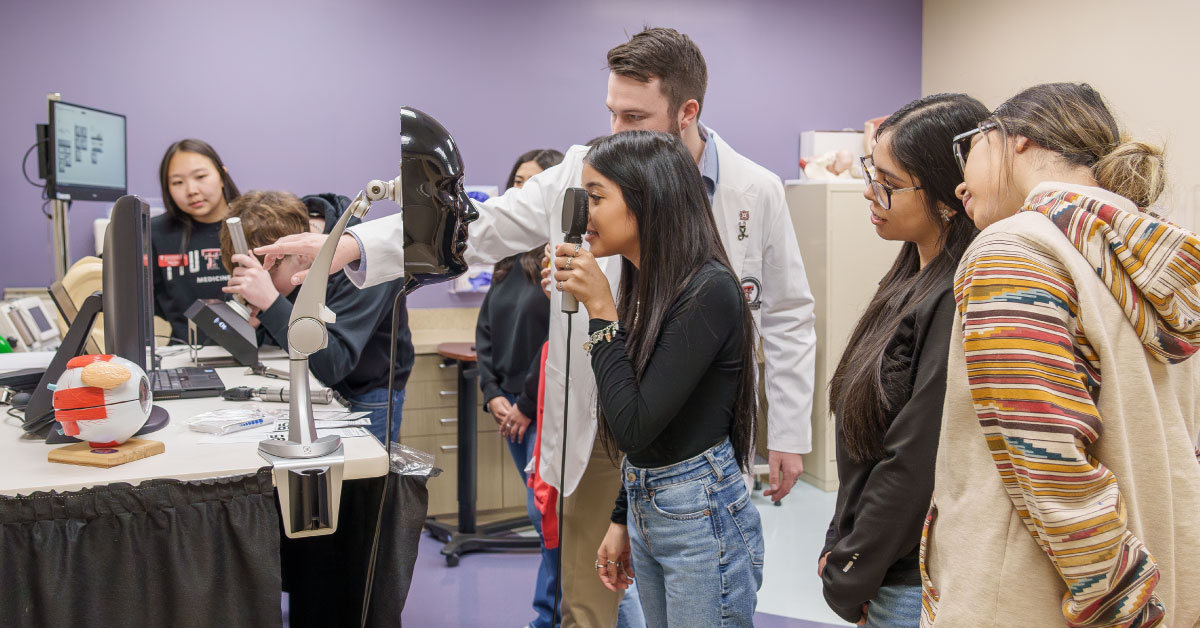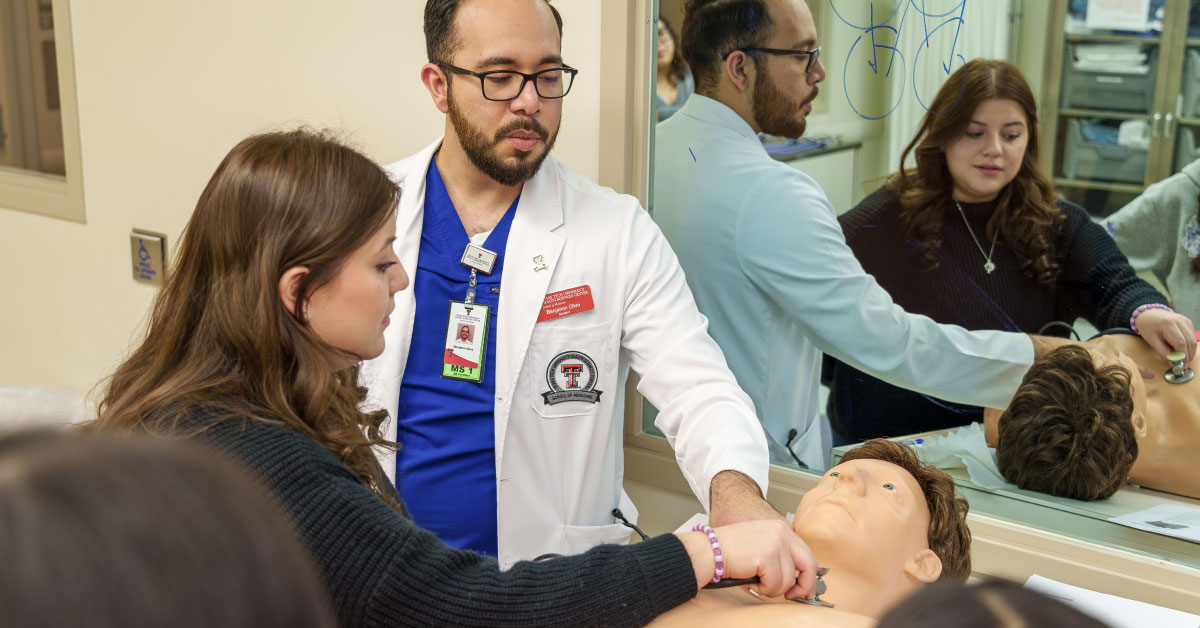Rural high school students learn about paths to medical careers

Denver City High School students screened for and diagnosed illnesses, injuries and other medical conditions. Hands-on learning through a wide range of clinical simulations is part of the Docs for a Day Minicamp hosted by the Texas Tech University Health Sciences Center (TTUHSC) Student National Medical Association (SNMA) on Thursday, Feb. 15 at the TTUHSC F. Marie Hall SimLife Center, 3601 Fourth Street.
Docs for a Day is an interactive youth outreach activity with the mission to inform students about careers in medicine and inspire them by giving them a first-hand perspective into what medical school involves.

Students experience a day in the life of a medical student
In the TTUHSC’s F. Marie Hall SimLife Center, high school students role-played and interacted with patient simulation manikins in a variety of medical scenarios. Guided by SNMA members, the high school students used basic health screening tools and ultrasound equipment to learn how they are used by physicians and other medical professionals.
“Our biggest aspiration is that this event will allow these rural high school students to envision themselves in the health care field and realize that such a career is within their grasp,” TTUHSC SNMA Community Outreach Co-chair Valeria Levin said.
SNMA Community Outreach Co-chair Heidi Gonzalez is a Denver City High School graduate. “It means a lot to me to be able to give these students an opportunity like this,” she said, “especially since I decided to pursue a medical career when I was in high school.”
SNMA has chapters at medical schools throughout the country. It is an organization committed to supporting current and future underrepresented medical students, addressing the needs of underserved communities, and increasing the number of clinically excellent, culturally competent and socially conscious physicians.
